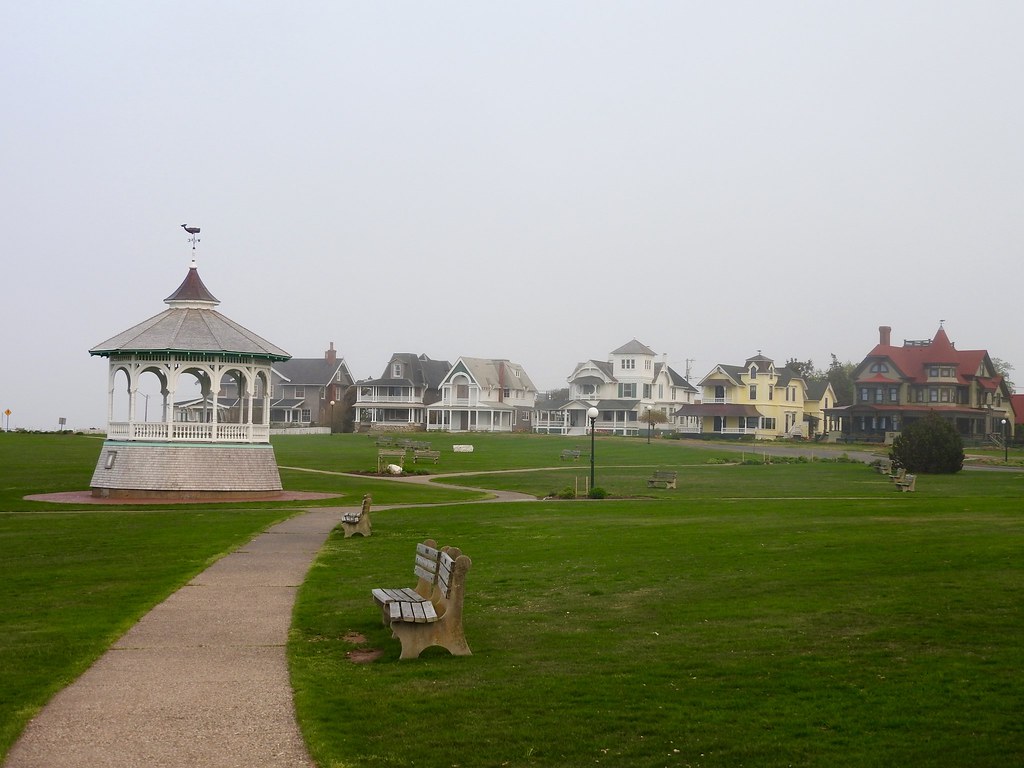I noticed that Prince George’s County, Queen Anne’s County and St. Mary’s County — all in Maryland — included the genitive apostrophe to form their possessive constructions. I’d always taken it on faith that the United States Board on Geographic Names disallowed apostrophes for that specific purpose. That’s how we ended-up with Harpers Ferry and other odd conglomerations. The possessive remained awkwardly in place without an apostrophe. I wondered how Maryland got away with it.
A little checking revealed a probable answer. The Board’s Frequently Asked Questions page said: “certain categories—broadly determined to be ‘administrative’—are best left to the organization that administers them. Examples include schools, churches, cemeteries, hospitals, airports, shopping centers, etc.” In those cases (and apparently counties fell within “etc.”), possessives formed by an apostrophe-s could exist. Maryland felt that a prince, a queen and a saint all deserved an apostrophe.
However, for names not considered broadly administrative, exceptions with the genitive apostrophe were extremely rare. The Board authorized apostrophes for that specific purpose only five times since its creation in 1890. Lots of theories and folklore attempted to explain that odd disdain for apostrophes although the FAQ proclaimed: “The Board’s archives contain no indication of the reason for this policy.” Someone a century ago apparently had a preference, made a bold decision and it stuck.
Each of the five exceptions merited further examination. Most were obscure. Fortunately the Geographic Names Information System included additional justification for these deviations and I could use them to tell their stories.
Martha’s Vineyard, Massachusetts (approved 1933)

Martha’s Vineyard (map) would be the prime example. I won’t spend any time talking about it because I’d like to save that for another day. Maybe it’s wishful thinking or maybe it’s foreshadowing. I’ll simply note that if I ever want to tally Dukes County on my county-counting list I’ll need to travel to Martha’s Vineyard (or one of several smaller islands nearby).
[UPDATE: I did visit Martha’s Vineyard the following year].
Ike’s Point, New Jersey (approved 1944)
GNIS described Ike’s Point as “a swamp point on the western side of Jenkins Sound about 0.4 km (0.25 mi) south of Shellbed Landing“. Nearby residents named it for a local family and it had been in common usage for at least 60 years when evaluated in the 1940’s. The Board decided to keep the apostrophe to clarify pronunciation. Otherwise it would have been Ikes Point and subject to various interpretations.
Surprisingly, Google Street View coverage went all the way to Shellbed Landing. It’s possible to sort-of see Ike’s Point in the distance.
John E’s Pond, Rhode Island (approved 1963)

The same issue pertained to John E’s Pond on Block Island, Rhode Island, not far from the Southeast Lighthouse (map). Otherwise it would have been John Es Pond.
Originally the Board named this tiny pool of water something else, Milliken Pond. It reversed the decision in 1963 citing “apparent persistence in local usage, recently verified by GS field workers” that dated back to 1886. Actually, further statements in the record implied that another variation may have been more common, John E’s Tug Hole. Some 12MC Intertubes sleuthing found several other “tug holes” on Block Island: Dees Tug Hole (included in GNIS – map); Ames Tug Hole and Elija Tug Hole. Tug hole served as an extremely localized term for a pond, apparently.
Carlos Elmer’s Joshua View, Arizona (approved 1995)

Carlos Elmer’s Joshua View (map) certainly seemed to be a mouthful for an isolated slope in Arizona. However the words Carlos, Elmer and Joshua might confuse readers because in many usages they were all first names. The place wouldn’t make any sense without the apostrophe. From the minutes of the Arizona State Board on Geographic and Historic Names, January 11, 1995:
“Booth, Arizona Board member and proposer of the name, provided a brief biographical sketch of Carlos Elmer, long time Arizona photographer published in Arizona Highways Magazine. Booth commented that he had consulted with Elmer’s widow in trying to locate an area that he loved and to establish a name in memory of him, and together they pinpointed a mountain slope that is very dense with Joshua trees, a subject of many of Elmer’s photos… removing the word Joshua from the title would be inappropriate, because Joshua trees were the subject of the area that Carlos Elmer photographed.”
The United States Board on Geographic Names concurred with the Arizona Board’s recommendation.
Clark’s Mountain, Oregon (approved 2002)
Clark’s Mountain retained its apostrophe for historical reasons. The name came about as part of events commemorating the 200th Anniversary of the Lewis and Clark Expedition. William Clark likely admired the view from this eponymous mountain as desribed in the journal of Meriwether Lewis on January 10th, 1806.
“Capt. C. found the road along the coast extreemly difficult of axcess, lying over some high rough and stoney hills, one of which he discribes as being much higher than the others, having it’s base washed by the Ocea[n] over which it rares it’s towering summit perpendicularly to the hight of 1500 feet; from this summit Capt. C. informed me that there was a delightfull and most extensive view of the Ocean, the coast and adjacent country; this Mout. I have taken the liberty of naming Clark’s Mountain and point of view; it is situated about 30 M. S. E. of Point (Adams) and projects about 2 1/2 miles into the Ocean…”
Meriwether Lewis named the vantage point Clark’s Mountain — with an apostrophe — for his co-leader while the famed Corps of Discovery explored overland to the Pacific Ocean and back. The Board decided to honor his choice.

Leave a Reply